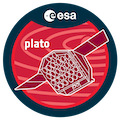Speaker
Description
The study of exoplanet satellites, commonly referred to as exomoons, holds promise in the fields of exoplanet formation, astrobiology, and planetology. Research on planets within the Solar System suggests that satellites play a crucial role in fostering internal activity on Earth-like planets. Consequently, the potential presence of an exomoon orbiting an exoplanet becomes a significant point of interest for investigating the internal differentiation and structure of these celestial bodies. One widely accessible approach involves analyzing the transit of exoplanets across their host star's disk. However, the challenge arises from the limited accuracy of current data, where measurement errors can surpass the subtle deviations in the light curve indicative of an exomoon's presence. In this study, we aim to search for exomoons focusing on confirmed exoplanets with recorded transits in the Kepler and TESS databases. To enhance the exomoon detection capabilities we are taking into account critical factors such as the precise orbital period of the planet, limb darkening, and the star's asteroseismic activity. Addressing these issues constitutes both a challenge and an objective of our research. Looking ahead, we intend to incorporate data from upcoming space telescopes and explore additional detection methods. Specifically, we are interested in examining advanced techniques such as tidal heating of exoplanets (THEM) and others relying on non-transit data types.

